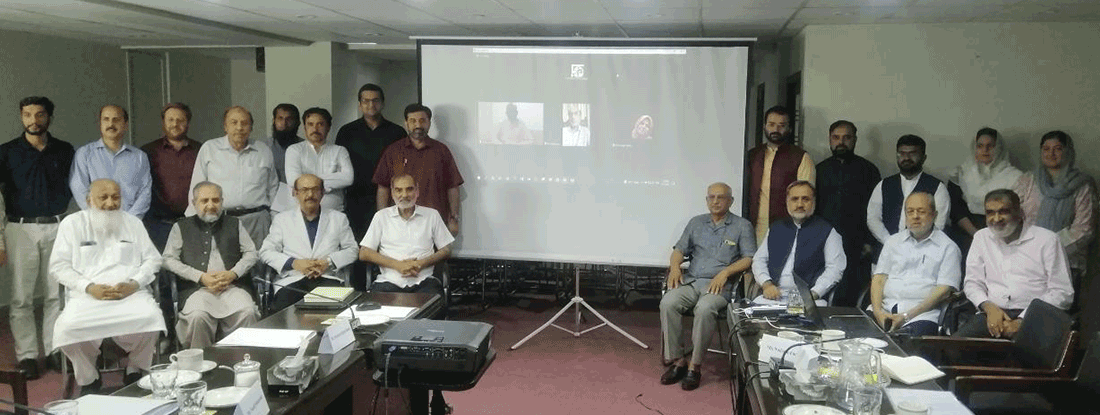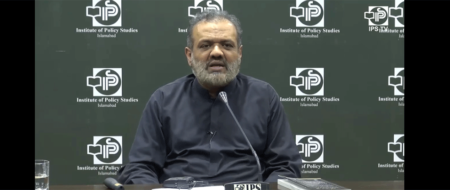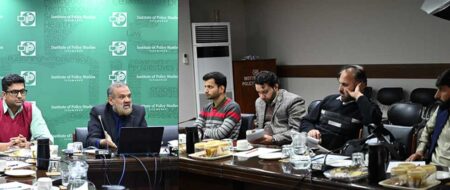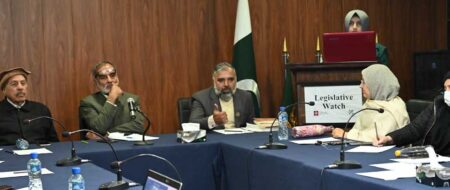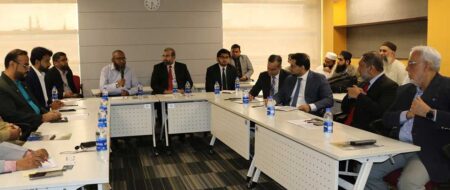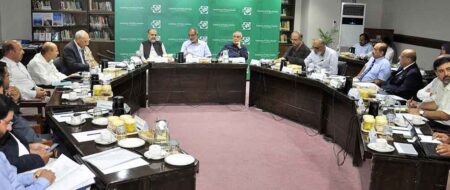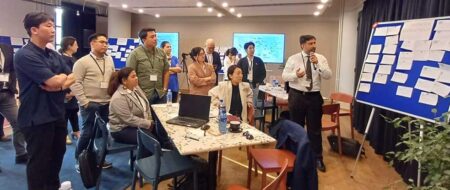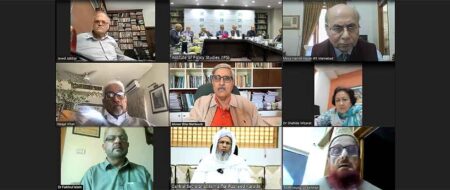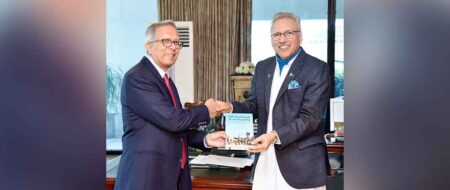Annual meeting of IPS-National Academic Council 2021
Speakers participating at the annual meeting of IPS-National
Academic Council (NAC) unanimously expressed their discontent over constantly
declining state of governance in Pakistan, while pinpointing various areas of
national significance where they saw an urgent need of improvement and reform.
The yearly meeting of IPS’ supervisory consultative body, which
comprises intellectuals, scholars, academicians and field experts from across
Pakistan, was held on September 18, 2021 with an aim to assess the work done by
the institute in the preceding year as well as to steer its research endeavors
going forward under their guidance.
The meeting was attended on location by Chairman IPS Khalid
Rahman, VC-IPS Ambassador (r) Syed Abrar Hussain, Prof Dr Anis Ahmad, vice
chancellor, Riphah International University (RIU), Dr Waqar Masood Khan, former
federal secretary, Ministry of Finance, Syed Abu Ahmad Akif, former federal
secretary, Climate Change, Prof Dr Anwar-ul-Hassan Gilani, vice chancellor,
University of Haripur, Dr Fateh Muhammad Burfat, vice chancellor, University of
Sindh, Dr Syed M Junaid Zaidi, executive director, COMSATS University, Dr Abdul
Rauf Rafiqui, director, Abdul Samad Khan Achakzai Chair, University of
Balochistan and Dr Nazir Ahmed Vaid, co-founder of Akhuwat Foundation, whereas
the members attending the session online included Sardar Masood Khan,
president, Azad Jammu and Kashmir (AJ&K), Prof Dr Qibla Ayaz, chairman,
Council of Islamic Ideology (CII), Dr Syed Tahir Hijazi, vice chancellor,
Muslim Youth University, Prof Dr Noreen Saher, chairperson, Department of
Anthropology, International Islamic University, Islamabad, Mirza Hamid Hasan,
former federal secretary, Water and Power and Air Cdre (r) Khalid Iqbal.
The participants reviewed the Institute’s performance of the
previous academic year in light of the suggestions put forward by the members
in last year’s meeting. They appreciated the progress made by the Institute
even in the testing times of pandemic, taking up issues of national importance
consistently and meeting its project targets adequately even amidst Covid19
limitations.
Dr Anis emphasized the need for supporting the Single National
Curriculum (SNC) initiative, bringing into discussion the role that the
Institute can play in removing the loopholes prevailing in the existing SNC
model.
Dr Tahir backed judicial reforms to improve timely dispensation
of justice in the country, and emphasized IPS to nurture interfaith harmony
through its research and publications.
Dr Noreen and Mirza Hamid Hasan were of the view that moral and
religious decadence in the global order owing to insatiable human greed and
lust for more and more military and economic might have triggered climate
vulnerabilities and posed a serious threat to human existence. They urged IPS
to initiate rigorous research on highlighting and addressing the fallouts of
global moral depravity.
Dr Waqar Masood Khan, Prof Dr Anwar-ul-Hassan Gilani, and Air
Cdre (r) Khalid Iqbal shed light on regional developments in South and Central
Asia with especial regards to rise of Hindutva in India, also pointing out new
research avenues that these developments had to offer.
Dr Fateh discussed the ills of drug abuse in academic
institutions in Pakistan and how it is jeopardizing the future of students. He
urged IPS to also take the drug abuse menace into its fold of research areas
for this year.
Syed Abu Akif underscored the need for increased institutional
engagement of IPS with other national level institutions such as National
Institute of Management, etc. He hoped the Institute will also undertake policy
research endeavors on the strategic implications of sports activities and
tourism boom in Pakistan.
The other noteworthy deliberated upon areas in the session
included the emerging threats to religious and sectarian harmony in the region
and particularly in Pakistan, rise of Hindutva in India and its implications
for the region’s peace, emphasis on the role of academia in nation building,
skill development endeavors in policy research, purported legislations to
debilitate ideological foundations of the state, and focus on Central Asia in the
wake of the Taliban’s ascension to power in Afghanistan.
Concluding the
session, Rahman spoke about the gravity of the ongoing narrative war in the
global scenario and stressed the need for highlighting the nation’s success
stories – such as Akhuwat Foundation – instead of continuing to bash the
shortcomings all the time. He shared that more research projects/briefings on
the forced conversion phenomenon are in the pipeline, while reiterating that
the Institute will continue to undertake similar objective endeavors in the
future as well in a bid to bring ground situations and realities into the
light.


